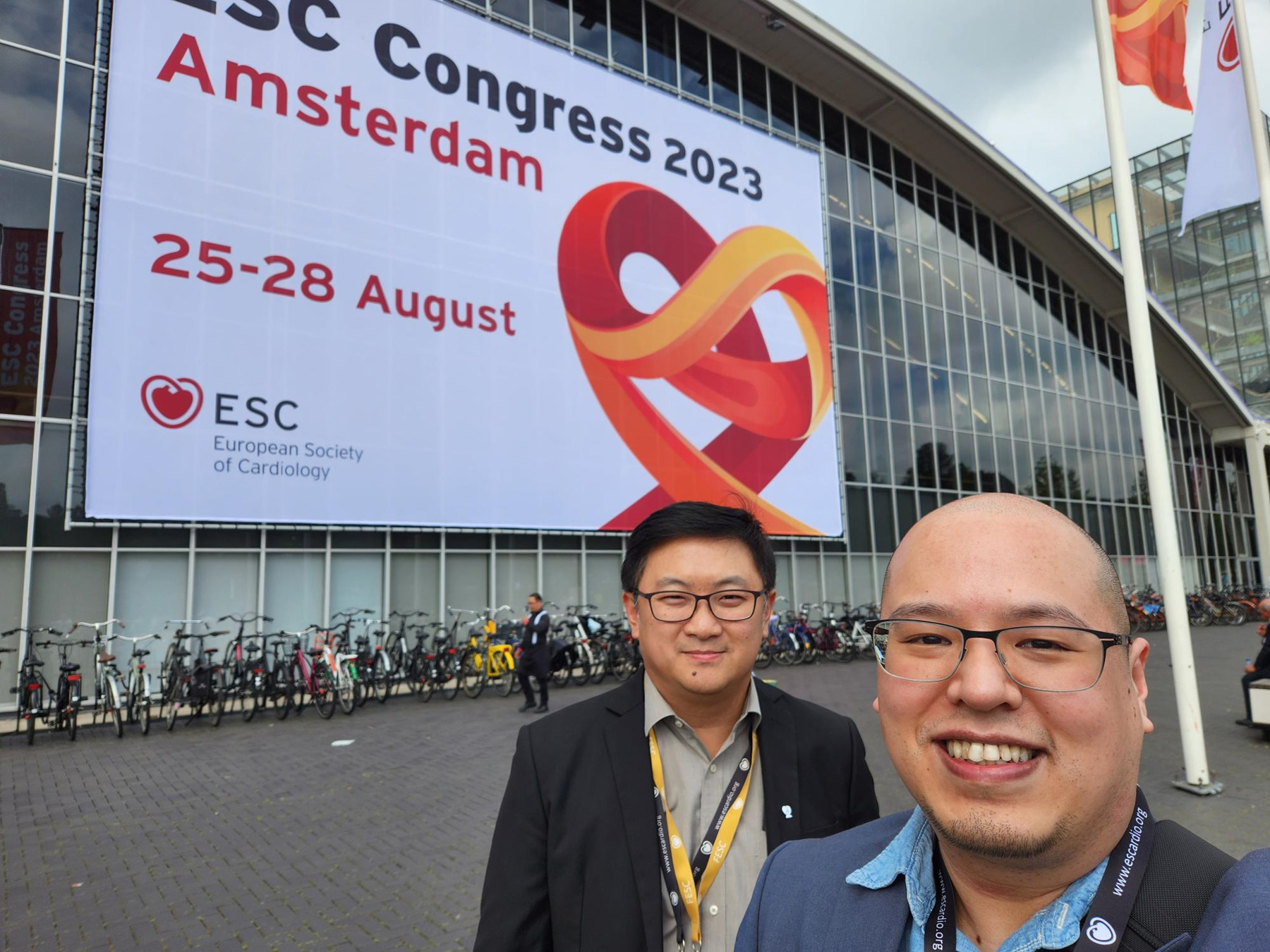KUCHING – Two esteemed academics from Swinburne University of Technology Sarawak Campus’ Faculty of Engineering, Computing and Science recently presented their ground-breaking research during the European Society of Cardiology (ESC) Congress 2023, which was held in Amsterdam from 25 to 28 August 2023.
The ESC Congress 2023 focused on challenges and breakthroughs in the field of cardiovascular medicine. With this year’s theme of ‘Joining Forces to Protect the Heart’, the congress served as a stage for global experts, drawing an impressive crowd of over 30,000 attendees from around the world.
The study entitled ‘Deep Learning in Digital Health with ChatGPT: A Study on Efficient Code Generation’ was led by Swinburne Sarawak’s Head of School of Information and Communication Technologies and Director of Centre for Digital Futures Professor Patrick Then and Deputy Head of School of Information and Communication Technologies Dr Brian Loh. Unveiled at the RAI Amsterdam Digital Health Stage on 26 August 2023, it delved into the utilisation of artificial intelligence (AI) in digital healthcare.
The study addressed a pressing issue in the healthcare tech arena; the need for specialised skills and expertise in AI application development, which may be a hurdle for clinicians without extensive programming skills.
Dr Loh demonstrated how ChatGPT, a sophisticated language model developed by OpenAI, could generate fully operational programming scripts based solely on natural language inputs. The feasibility was demonstrated by a successful real-world test in echocardiogram view classification, which boasted an accuracy rate exceeding 80%.
This pioneering research illustrated the potential of AI-powered code generation in digital healthcare solutions. Contributions to this research by Dr Alan Fong and Dr Ong Tiong Kiam, cardiologists from the Sarawak Heart Centre, illustrated the remarkable balance between technical innovation and practical healthcare needs. As early as 2019, the group garnered international attention when they presented AI algorithms for echocardiogram analysis at the ESC Digital Summit in Estonia.
This latest work showcases a successful multidisciplinary model of success, blending expertise in cardiology and computer science and setting a new precedent for future interdisciplinary studies in healthcare technology.

(From left) Professor Patrick Then and Dr Brian Loh at the European Society of Cardiology Congress 2023.
Professor Then highlighted the potential of Large Language Models (LLMs) such as ChatGPT and their capacity to serve as invaluable tools for professionals without technical backgrounds.
“Future research will investigate the applicability of LLMs to a wider array of use. This could potentially streamline the integration of AI applications into healthcare systems, thereby catalysing broader adoption of AI technologies in the medical field,” he said.
Swinburne is dedicated to producing internationally recognised research with a focus on transforming industries, shaping lives and creating positive change.
For more information on Swinburne Sarawak, visit its website (www.swinburne.edu.my), Facebook page (@swinburnesarawak), Instagram page (@swinburnesarawak), Twitter page (@Swinburne_Swk), TikTok page (@swinburnesarawak) or YouTube channel (Swinburne Sarawak).


